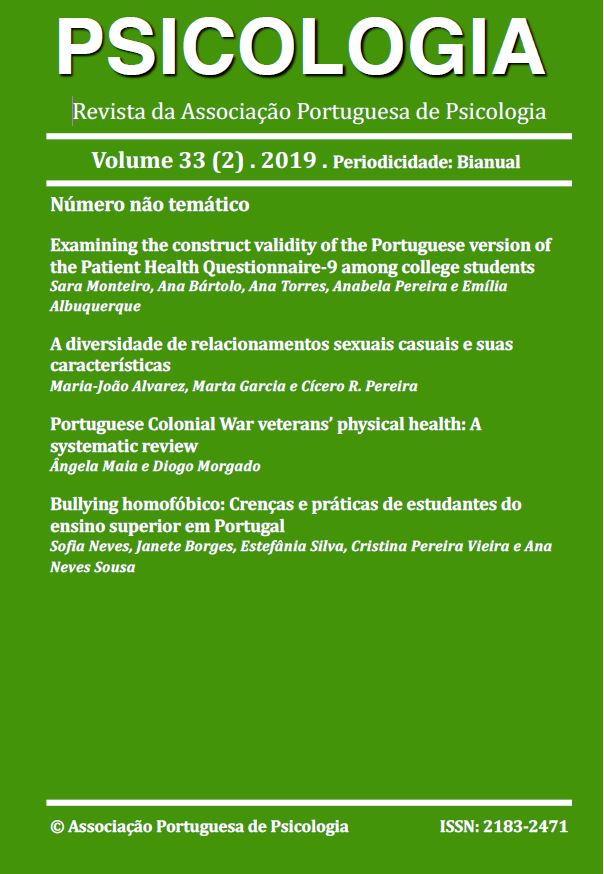Examining the construct validity of the Portuguese version of the Patient Health Questionnaire-9 among college students
DOI:
https://doi.org/10.17575/rpsicol.v33i2.1421Keywords:
depression, PHQ-9, college students, validationAbstract
The present study examines a new factor structure and the convergent validity of the Portuguese version of the Patient Health Questionnaire-9 (PHQ-9) with college students. This measure has been used to evaluate depressive symptoms in adults. The total sample included 958 college students. Data were collected from a Web-based survey carried out in schools forming the Polytechnic Institute of Coimbra. Students completed the PHQ-9 and Hospital Anxiety and Depression Scale (HADS) and Brief Symptom Inventory (BSI) subscales as convergent measures. Results pointed to good fit of a second-order factor model with three first-order factors (somatic, cognitive and affective dimensions of depression). Strong positive correlations were found between PHQ-9 scores and HADS depression and BSI depression subscales. Our findings reinforce the PHQ-9 as a valid tool in higher education settings. Future studies should re-examine the dimensional structure of the tool considering its implications for the clinical interpretation of the measure.


